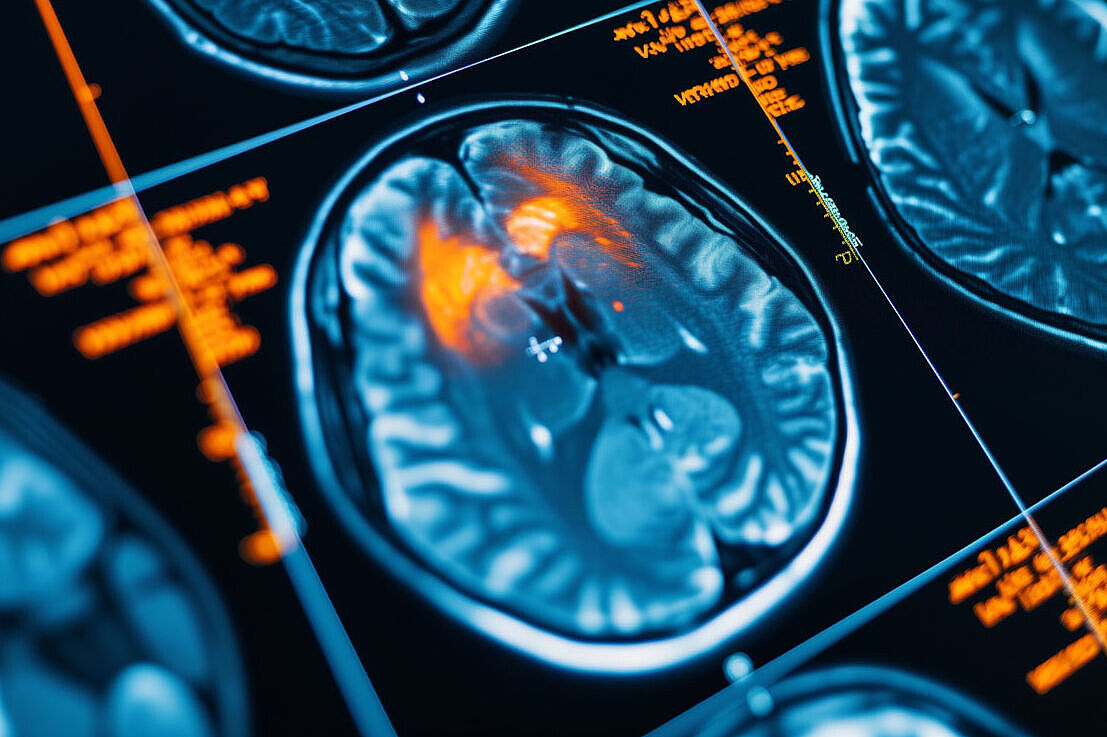Research project aims to contribute to good medical care in Germany
Rostock/Germany, November 29, 2024. In Germany, a recently launched study under the auspices of DZNE is investigating whether patients with “dementia of unclear etiology” benefit from examination of their brains using amyloid positron emission tomography (amyloid PET). Should this form of diagnostics contribute significantly to a better disease progression, the statutory health insurance providers could possibly pay for such brain scans in the future. The study was commissioned by the Federal Joint Committee (G-BA), the body that decides on the services covered by German statutory health insurers.
Every year, more than 350,000 people in Germany develop dementia. Whether this is due to Alzheimer’s or another neurological disease often remains unclear. “Diagnostic uncertainty prevents the best possible treatment. Although there is currently no cure for dementia, there are specific therapeutic measures depending on the form of dementia that support the capacity to independently manage activities of daily living. This is important for the quality of life of patients,” explains Prof. Stefan Teipel, dementia researcher at the DZNE’s Rostock/Greifswald site and head of the Section for Gerontopsychosomatics and Dementia at Rostock University Medical Center. “With this in mind, we investigate whether amyloid PET can help provide good care for people with dementia.”
Study on behalf of the G-BA
Amyloid PET can detect so-called amyloid in the brain. These protein deposits are hallmarks of Alzheimer’s and thus provide important evidence for diagnosis. It was shown that this technique increases diagnostic certainty. But does it provide added value for patients? In fact, such benefit has not been clearly demonstrated so far, which is why this examination is generally not covered by statutory health insurance providers in Germany. The current research project named “ENABLE: Patient- and care-related benefits of amyloid PET imaging” (a study according to §137e of the German Social Code Book V) aims to provide certainty. The criterion is how the study participants’ everyday skills develop as a consequence of PET examination and subsequent therapy. The project is financed by the “Federal Joint Committee”, a central body in the German healthcare system. “Our study results will be considered in future decisions on the services provided by statutory health insurance companies,” says study leader Stefan Teipel.
First participants enrolled
Under the lead of DZNE, more than 20 study centers across Germany located at university hospitals as well as institutions from the private practice sector will participate in the investigation. “After several years of preparation, we have now enrolled the first subjects in the study. By 2026, we aim to include more than a thousand individuals with mild to moderate dementia of unclear cause, all of whom being treated within the framework of regular care,” says Teipel.
Prof. Gabor Petzold, DZNE’s Director of Clinical Research, sees this study as a prime example of cooperation between research and clinical practice: “Partners from academia, industry and healthcare are involved in this project. This way, we are building a bridge between research and practice. This study will provide important momentum for the health care of people with dementia in Germany.”
Assessing everyday functioning
The study participants will be randomly assigned to two equally sized groups: The subjects in one group will be examined with amyloid PET, while the others will not. This will only include patients in whom the alternative procedure for detecting amyloid (which involves taking a fluid sample from the spinal canal) could not be performed or did not provide a conclusive result. “The PET findings will have an impact on medication and other therapeutic measures. The question now is whether this has measurable consequences. That is, if these people are better able to cope with everyday life than those in the control group who did not have a PET scan,” says Teipel. “That is why we will monitor the development of the daily living skills of all study participants over a period of 24 months.”
About Deutsches Zentrum für Neurodegenerative Erkrankungen, DZNE (German Center for Neurodegenerative Diseases): DZNE is a research institute for neurodegenerative diseases such as Alzheimer’s, Parkinson’s and ALS, which are associated with dementia, movement disorders and other serious health impairments. To date, there are no cures for these diseases, which represent an enormous burden for countless patients, their families and the healthcare system. DZNE is dedicated to the development and translation into practice of novel strategies for prevention, diagnosis, care and treatment. The institute comprises ten sites across Germany and collaborates with universities, university hospitals, research centers and other institutions in Germany and throughout the world. It is state-funded and a member of the Helmholtz Association and of the German Centers for Health Research

